HRW Accuses The Taliban Of Deporting Shiites From Their Homes
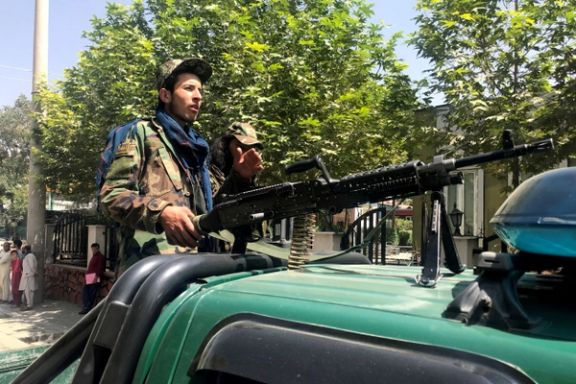
Human Rights Watch (HRW) has accused the Taliban of forcibly evicting thousands of Afghans as collective punishment against mainly the Shiite Hazara minority.

Human Rights Watch (HRW) has accused the Taliban of forcibly evicting thousands of Afghans as collective punishment against mainly the Shiite Hazara minority.
The New York-based human rights organization said in a statement that the Taliban, who are Sunni extremists, have forced hundreds of families in different parts of Afghanistan to leave their homes and farms.
HRW said that the move was partly motivated by land grab, whereby the Taliban distribute the agricultural lands to their supporters or ethnic keen. The Taliban are mainly from the Pashtun ethnic group.
“The Taliban are forcibly evicting Hazaras and others on the basis of ethnicity or political opinion to reward Taliban supporters,” said Patricia Gossman, associate Asia director at Human Rights Watch. “These evictions, carried out with threats of force and without any legal process, are serious abuses that amount to collective punishment.”
There have been at least to bombing attacks against the Hazara community in Afghanistan attributed to the Islamic State group, a seemingly rival group to the Taliban
Iran’s Shiite government has called on the militant group, who captured the country in August, to protect minorities, particularly Shiites.
The Hazaras were targets of Taliban violence during the earlier period of their rule in Afghanistan before 2001.
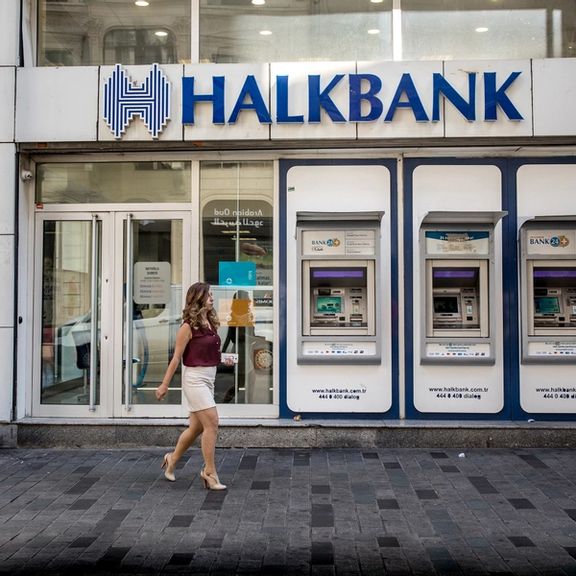
A US appeals court on Friday rejected Halkbank's bid to dismiss an indictment accusing the state-owned Turkish lender of helping Iran evade American sanctions.
The 2nd US Circuit Court of Appeals said even if the Foreign Sovereign Immunities Act shielded the bank, the charge against Halkbank falls under the commercial activity exception.
Prosecutors accused Halkbank of converting oil revenue into gold and then cash to benefit Iranian interests and documenting fake food shipments to justify transfers of oil proceeds.
They also said Halkbank helped Iran secretly transfer $20 billion of restricted funds, with at least $1 billion laundered through the US financial system during international sanctions from 2011-2015.
Halkbank has pleaded not guilty to bank fraud, money laundering and conspiracy charges over its alleged use of money servicers and front companies in Iran, Turkey and the United Arab Emirates to evade sanctions.
The bank had argued that it is immune from prosecution under the federal Foreign Sovereign Immunities Act because it was "synonymous" with Turkey, which has immunity under that law.
Halkbank had been appealing an Oct. 1 ruling by US District Judge Richard Berman allowing it to be prosecuted.
Berman has overseen several related cases, including the conviction of a former Halkbank executive and a guilty plea by Turkish-Iranian gold trader Reza Zarrab.
Halkbank's case has complicated US-Turkish relations, with President Tayyip Erdogan backing Halkbank's innocence in a 2018 memo to then-US President Donald Trump.
Reporting by Reuters

Mass Friday Prayers resumed in Tehran after a 20-month Covid-19 interruption, as the main sermon emphasized unity among Muslims and warned of foreign plots.
The youngest Friday Prayers’ Imam in Tehran, Mohammad-Javad Haj Ali Akbari reiterated this week’s calls by Iranian officials at the International Islamic Unity Conference held in Tehran for Muslims to strive for friendship and close ranks against “foreign plots”.
The Islamic conference is a public relations event organized by the Islamic Republic to show that there is unity among Shiites and Sunnis and to carve a place for the clerical regime among other Muslims.
Iran has started talks with Saudi Arabia since April for reducing tensions and possibly reestablishing relations that were severed in 2016. Iran is keen to show the West that it is trying to improve ties with regional countries on its own and there is no need for them to demand negotiations over the issue.
The Friday Prayers Leader praised Iranian armed forces for their “brilliant” accomplishments and claimed that “Americans with their scandal in elections and defeat in West Asia, which was a strategic defeat, have no option but exit from Iraq.” He added that the US after spending 8 trillion dollars in West Asia was defeated and “even if it spends 800 trillion, it has no option but to leave” the region.
The prayers at Tehran University, a gathering of religious and political significance, came as authorities warned of a sixth wave of the coronavirus, which according to official figures has claimed 124,928 lives in Iran and afflicted more than 5.8 million. Critics of the government’s handling of the pandemic say the real death toll was at least twice the official figure.
The government says more than 28.2 million people have so far received a second dose of the Covid-19 vaccine.
“Today is a very sweet day for us. We thank the Almighty for giving us back the Friday prayers after a period of restrictions and deprivation,” said Haj Ali Akbari said.
Worshippers had to heed social distancing and use face masks during the gathering, a forum where officials present a unified front in the weekly sermon, a duty that rotates around senior members of Iran’s conservative clerical establishment.
Most worshippers brought their own prayer rugs and clay tablets used during prostration, said the broadcast.
It said Friday prayers also were performed in several other Iranian cities.
Health Minister Bahram Einollah said earlier this week that it was a "certainty" that Iran would face a sixth wave next week. The warning came even as the country has accelerated its vaccination drive.
Einollahi added that his country was well-prepared for the new surge.
Schools with more than 300 students will re-open on Nov. 6, Alireza Kamarei, spokesman for Iran’s Education Ministry, said earlier this week, adding that it was not essential for students and teachers to be vaccinated. He said 85% of the country's teachers and 68% of students had so far been inoculated and that classrooms were well ventilated.
With reporting by Reuters
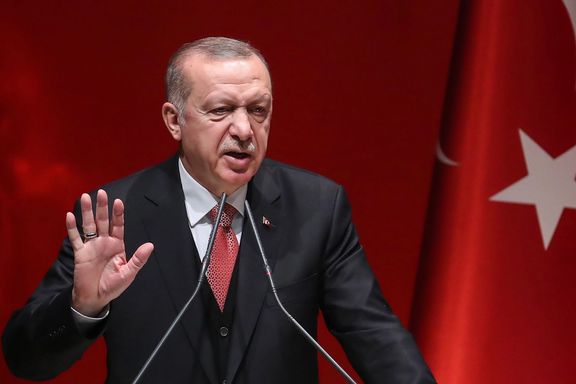
Iran is in no position to "target Azerbaijan" for relations with Israel for fear of its own Azari population, Turkish President Recep Tayyip Erdogan has said.
Referring to a reporter’s question on whether recent Iranian military maneuvers would “escalate into a hot crisis” in the Caucasus, Erdogan said he had "no such expectation," according to a government English-language news release.
Because of Baku’s relations with Israel, “Iran will not be hostile to Azerbaijan or put Azerbaijan on the target list” because its own Azaris were “noticeable,” the president said.
During the 2020 conflict between Azerbaijan and Armenia, some among Iran’s Azaris, around a quarter of the 80 million population, expressed sympathy for Baku’s cause.
But Erdogan, speaking to reporters on a plane returning from an African tour also played down tensions between Iran and Azerbaijan, which relaxed this week with Thursday’s release of two Iranian truck drivers arrested on a transit route to Armenia now under Azerbaijani control.
"It is not that simple,” the president said. “What has been done thus far [by Iran] is inappropriate, and I believe that Iran's new administration will not repeat this misstep.”
The first to fall in
Iranian authorities have not commented on Erdogan’s remarks, the first from a senior Turkish figure on Iran's military drills near the Turkish border and the recent standoff between Tehran and Baku. Iran's Supreme Leader Ali Khamenei on October 3 highlighteda reported Israeli military presence in Azerbaijan and appeared to refer to Turkey's role in warning that "the person who digs a well [to trap] for his brothers is the first one to fall into it."
Iran is also concerned at the reported presence of jihadist fighters from Syria in Azerbaijani territory allegedly recruited by Turkey to help Baku in its war against ethnic Armenians in and around Nagorno-Karabakh during last year's conflict. Turkey and Azerbaijan have denied the allegation.
The Turkish president's comments came as tensions between Tehran and Baku appeared to ease since last week’s phone-call between the Iranian and Azerbaijani foreign ministers. In a meeting with lawmakers from East and West Azarbaijan provinces Thursday, President Ebrahim Raisi (Raeesi) stressed that good relations with neighboring countries was a government priority, and that Iran would not allow Israel to sabotage them.
In a December 2020 speech to a victory parade in Baku after the Azerbaijan-Armenia war,
Erdogan recited a folk poem, popular both in both Azerbaijan and the Iranian Azari provinces, lamenting the division of the ethnic Azari by the river Aras separating Azerbaijan and Armenia from Iran.
Sultan of illusion
Iran's foreign ministry summoned the Turkish ambassador, while foreign minister Mohammad Javad Zarif reacted with uncharacteristic vigor. Much of the Iranian media dubbed the Turkish president the 'Sultan of illusion.'
Erdogan also in the speech referred to "one nation, two states," citing Turkey and Azerbaijan’s shared linguistic heritage. "One nation" is often used by pan-Turks to express the unity of speakers of all Turkic languages, across central Asia and including Azerbaijan and Iran’s north-west Azari-populated northwest.
Pan-Turkism has been on the rise among Azari (Torki) speakers of Iran in the past two decades. Separatist groups call Iran’s northwestern regions ‘South Azerbaijan.’ The Turkic languages spoken in Iran's northwest and some other parts of Iran have fed a movement advocating unification of speakers in Iran and the Republic of Azerbaijan, whose territory was part of Iran until the early nineteenth century when ceded to the Russian empire.
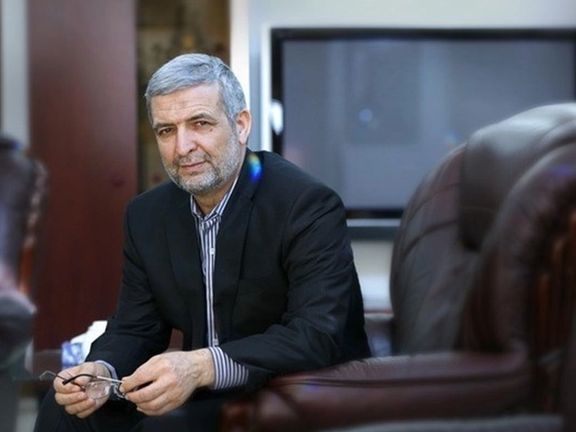
Iran’s President Ebrahim Raisi’s special representative for Afghanistan and a lawmaker have said that agreement with the Taliban is possible on certain issues.
Hassan Kazemi-Ghomi who was appointed as Raisi’s point-man on Afghanistan told Iran’s state broadcaster that it would be possible for Tehran to reach agreement with the Taliban over water sharing issues and prevention of narcotics smuggling.
He added that Afghanistan is currently affected by security crisis and Iran should “consider priorities and prevailing condition.” Kazemi-Ghomi repeated statements made earlier by Iranian officials that there is a “foreign conspiracy” to plunge regional countries in conflict and Iran should try to “emerge from this situation”.
Meanwhile, Hassan Hemmati, a member of parliament’s national security committee has said that if Taliban can provide security and protect the rights of all religious groups “It would be possible to have normal relations with them” guided by Iran;s national interests.
Since the Taliban takeover, Tehran has been cautiously suggesting that the Islamic militant group has changed, and they are the de-facto rulers of Afghanistan. It has also avoided supporting anti-Taliban rebels. But Iran has also insisted that the Taliban respect the rights of religious and ethnic minorities, particularly Shiites.
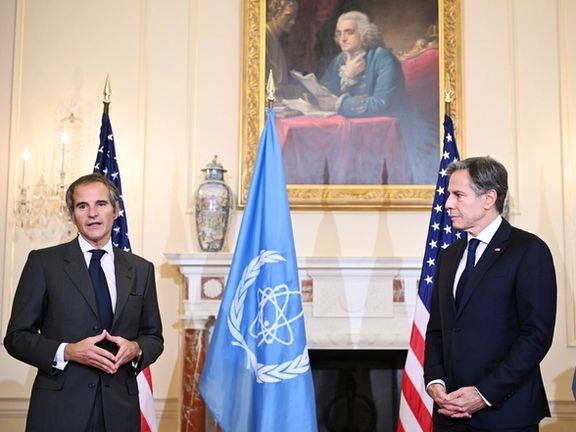
IRGC-affiliated media in Iran has suggested that the US is using IAEA chief Rafael Grossi to exert pressure on Tehran to return to nuclear talks in Vienna.
Javan daily newspaper published a commentary by Hadi Mohammadi on Thursday that the United States is using the International Atomic Energy Agency (IAEA) to monitor Iran's nuclear activities and to inspect its nuclear installations on its behalf, based on the authority vested in the UN nuclear watchdog by the Non-Proliferation Protocol (NPT) and some of the clauses in the Iran nuclear deal, JCPOA.
The United States and the West benefit from the intelligence gathered by the IAEA for them free of charge, Mohammadi claimed in the commentary. Meanwhile, he opined that this intelligence gathering mechanism was badly harmed with the reduction in Iran's commitments under the JCPOA. However, the IAEA Chief is trying to get back the initial concessions given to the West by the JCPOA, Javan maintained.
Last December, Iran passed a law limiting IAEA’s monitoring access to its nuclear sites, demanding that the US should lift its sanctions. A limited and temporary deal is in place now, but Grossi has complained that Iran is curtailing his agency’s ability to do its job.
The commentary further stressed that in fact, it is the United States that is under ‘maximum pressure’ by Iran to return to the negotiations as it has failed to force Iran to make new concessions.
Javan insisted that there is no room for the inclusion of talks about Iran's missile programs in the new negotiations, and the West can only hope to harness Iran's nuclear program, but it needs to give concessions to make that possible.
It described Grossi's call for having a political discussion with Iran's Foreign Minister Hossein Amir-Abdollahian as naïve and warned the IAEA chief that Iran is not under any commitment to go beyond the discussion of technical matters within the frameworks of NPT. Mohammadi added that Grossi should know that the members of Tehran's new negotiating team are different from their predecessors.
The commentary said that Grossi can only talk with Iran's nuclear chief Mohammad Eslami rather than hoping to meet with the foreign minister. "He should distance himself from the idea of holding talks in Iran by proxy for the United States," the commentary said, adding that a chat with Eslami is the most he can get if he visits Tehran. The US, said the commentary, should forget about the division of labor with Grossi and instead should make concessions.
Meanwhile, in another article entitled "Winding in Washington," another IRGC media outlet likened Grossi to a clock that Washington has winded to make its moves in Tehran. This article also repeated the argument of the commentary about Grossi being used by the US as a tool to exert pressure on Tehran before starting the talks to revive the JCPOA.
The article added that Washington is also planning to use Grossi to exert pressure on other countries, including China, via the International Atomic Energy Agency. This was a reference to US officials' statements about asking China to stop buying oil from Iran.
Grossi asked to meet with Amirabdollahian following his meetings with US officials including Secretary of State Antony Blinken this week. During the meeting, Blinken said that Iran should remain committed to the verification of its nuclear activities, stop provocative actions and return to diplomacy.
Subsequently, Grossi told the Financial Times Monday that "a temporary arrangement for the International Atomic Energy Agency (IAEA) to monitor Iran’s nuclear sites was no longer intact." Grossi told the newspaper he wanted "an urgent meeting – 'contact at the political level' − with Iran’s foreign minister Hossein Amirabdollahian to discuss surveillance arrangements."
“I haven’t been able to talk to [Iran’s new] foreign minister,” Grossi told the FT. “I need to have this contact at the political level. This is indispensable. Without it, we cannot understand each other.”